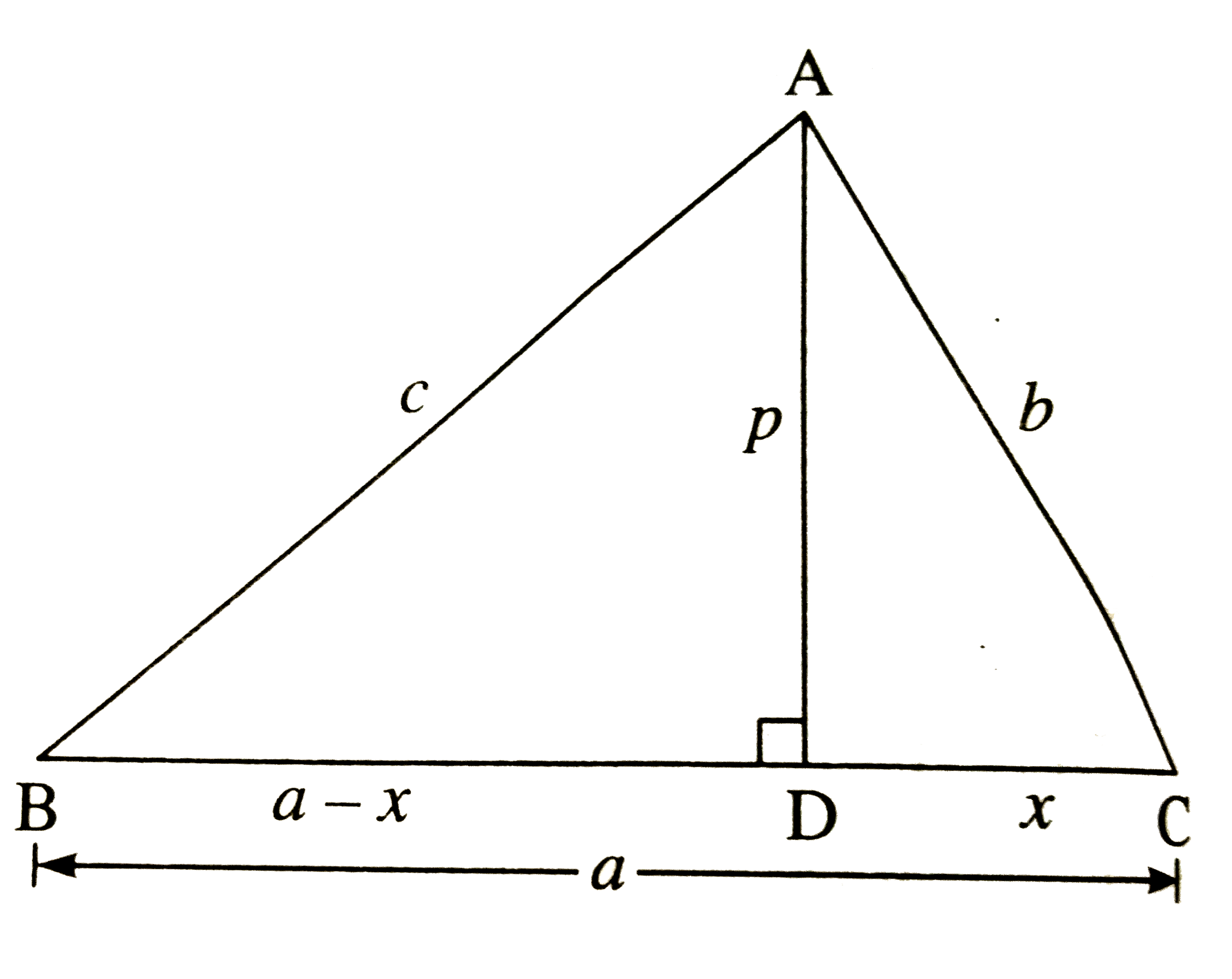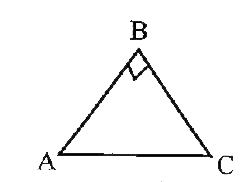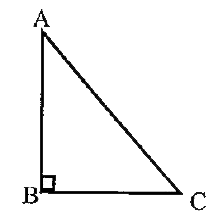Pythagoras Theorem
NA
Similar Questions
In ΔABC, ∠C is an acute angle, seg AD⊥ seg BC. Prove AB2=BC2+AC2−2BC×DC by completing the following activity.

Let AB=c, AC=b, AD=p, BC=a, DC=x
∴BD=a−x
In ΔADB, by Pythagoras theorem,
c2=(a−x)2+□
c2=a2−2ax+x2+□...........(1)
In ΔADC, by Pythagoras theorem,
b2=p2+□
p2=b2−□ ..........(2)
Substituting value of p2 from (2) in (1)
c2=a2−2ax+x2+□
c2=a2+b2−□
∴AB2=BC2+AC2−2BC×DC.
View SolutionTheorems
View Solution
Knowledge Check
While solving a problem based on 'Pythagoras theorem' a teacher draws the following triangle ABC

Ranjan argued that the triangle ABC is not drawn correetly . The only way to draw it is

Ranjan has the misconception asAHe is weak in geometrical conceptsBHis teacher must have always drawn the triangle in this particular wayCHe has dysgraphiaDHe lacks in analytical abilityWhile solving a problem based on ‘Pythagoras theorem', a teacher draws the following Δ ABC.

Rajan argued that the A ABC is not drawn correctly. The only way to draw it, is

Rajan has the misconception asAhe has dysgraphiaBhe lacks in analytical abilityChe is weak in geometrical conceptsDhis teacher must have always drawn the triangle in this particular wayPythagoras' is related to 'Geometry' in the same way as 'Kepler' is related to '__________'.
AAstronomyBOpticsCElectronicsDGeography
Theorems
View Solution(Pythagoras's Theorem) Prove by vector method that in a right angled triangle, the square of the hypotenuse is equal to the sum of the squares of the other two sides.
View SolutionWithout using Pythagoras's theorem, show that the points A(1, 2), B(4, 5) and C(6, 3) are the vertices of a right-angled triangle.
View SolutionWhich of following does not form a Pythagoras triplet ?
View SolutionPythagoras was a student of
View Solution
